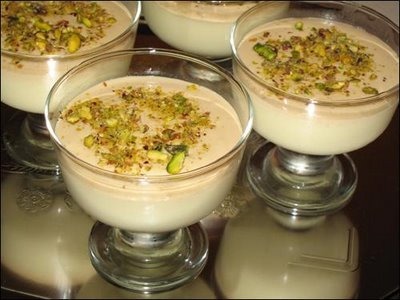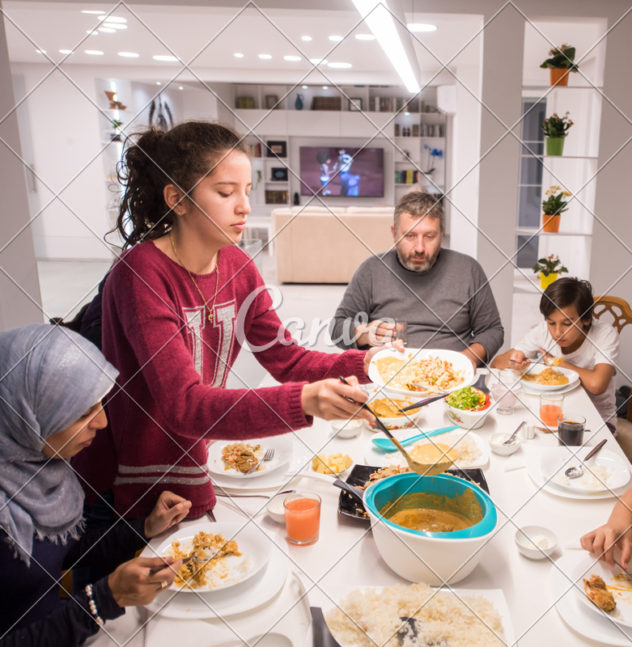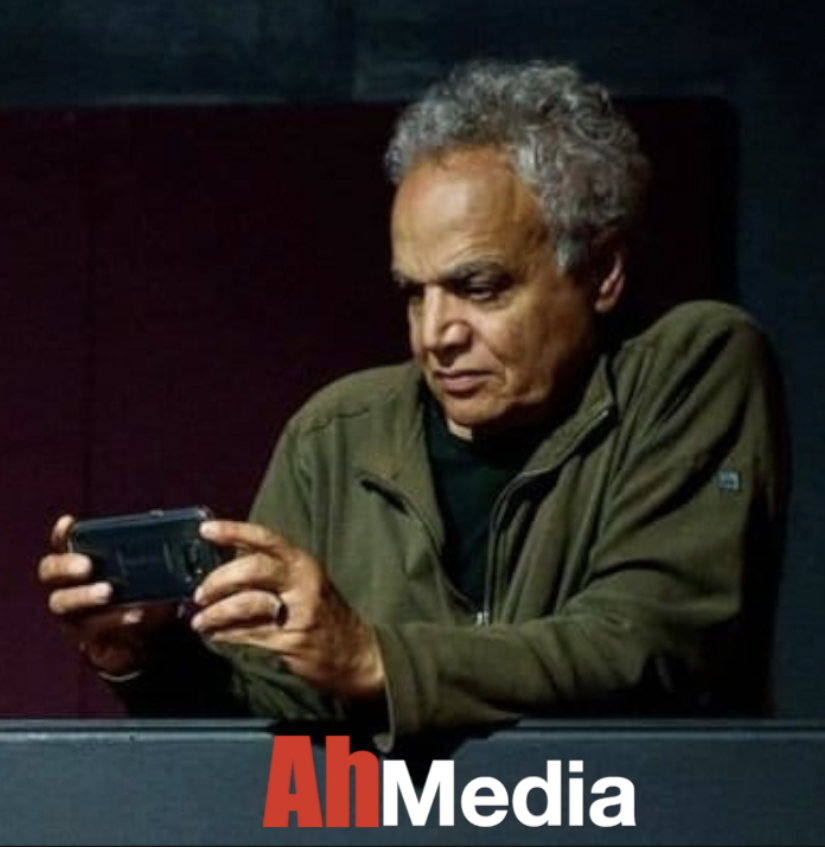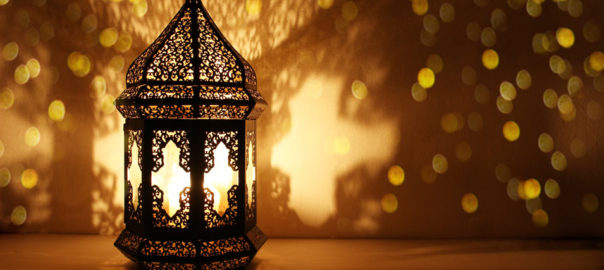
How Do you Survive Ramadan in America
This week, on may 6th, Millions of Muslims around the world started observing the holy month of Ramadan. Ramadan is the ninth month of Islamic calendar, that honors the time when god revealed to Prophet Muhammed through Angel Gabriel, the first verses of Quran. Ramadan is a festive month for Muslims , 30 days of Christmas. Where Muslims enjoy special traditions and immersed themselves in all night celebration. However, in the political climate of Islamophobic culture , and the rhetoric of demonizing Muslims and criminalizing Islam. In America, Muslim faith and practices are questioned and under the spotlight. . Observing Ramadan traditions, in Islamophobic America needs some adjustments and careful planning and to enjoy these Ramadan traditions and ritual in this tumultuous time without getting themselves in troubles, a Ramadan survival guide needs to be created, here are some unsolicited guideline to consider during some Ramadan traditions!
![]() Iftar (breaking fast): after a long day fasting, breaking your fast on sun set is magical, usually Iftar takes place under the tent in middle eastern restaurants, at Mosques, parks or public places, however, you may try to enjoy it quietly in the privacy of your own home, homemade food taste better anyway. And to keep the rich smell of Ramadan dishes from alarming your neighborhood, Keep windows closed, curtain down. If this too much for you, just make a short trip to McDonald’s , people at McDonalds don’t ask questions, and the don’t care. McDonalds is the most democratic place in America, where regardless of your race, nationality, gender, age, religion, income we all get the same happy meal.
Iftar (breaking fast): after a long day fasting, breaking your fast on sun set is magical, usually Iftar takes place under the tent in middle eastern restaurants, at Mosques, parks or public places, however, you may try to enjoy it quietly in the privacy of your own home, homemade food taste better anyway. And to keep the rich smell of Ramadan dishes from alarming your neighborhood, Keep windows closed, curtain down. If this too much for you, just make a short trip to McDonald’s , people at McDonalds don’t ask questions, and the don’t care. McDonalds is the most democratic place in America, where regardless of your race, nationality, gender, age, religion, income we all get the same happy meal. 
Fasting:
One of the hardest think about fasting in America, is fasting in a country where food is in abundances, and eating has become a form of entertainment, so enduring it quietly alone, don’t declare it in public, lunch time at work should be spent mostly in bathrooms, and if asked, in America, you have the right to remain silence.
 Suhoor (pre dawn meal) here, Muslim wake up in the middle of the night to have a light meal before the crack of dawn. This is the time when you have to be sensible, especially in cities, if your live in apartment building, skip Suhoor all together, and for good measurement, order pizza once in a while, and you may invite a neighbor for the a late party.
Suhoor (pre dawn meal) here, Muslim wake up in the middle of the night to have a light meal before the crack of dawn. This is the time when you have to be sensible, especially in cities, if your live in apartment building, skip Suhoor all together, and for good measurement, order pizza once in a while, and you may invite a neighbor for the a late party.
 Families and friends gathering:
Families and friends gathering:
Muslims usually gathered and celebrate the holy month together in a magical communal evening, at restaurants, mosques or community centers. So make sure your gathering is breaking up throughout the month, in a smaller groups that doesn’t exceed seven people, 10 top.
![]() Ramadan Lanterns:
Ramadan Lanterns:
Known as Fanous, in Arabic, these beautiful colorful lamps traces back over a thousand year ago to the holy month of Ramadan in 969 A.D. when the Egyptians were expecting the arrival of Al-Mu’izz li-Din Allah, the Caliph (a chief Muslim civil and religious ruler) to open the city. Now it is a symbol of cheerful festivities in Ramadan, where kids in the evening carry them in the street, shops, houses, business displaying like a Christmas decoration for a whole moth, this tradition must be reconsidered, use it in day time or indoors, one more thing, a flashlight may suffice for now.
 Ramadan dishes:
Ramadan dishes:
There are certain dishes that are associated with Ramadan, based on ethnicities and nationalities, but usually evolves lots of preparations and cooking, that may take whole day. Roasted lamp, Mulokheyah, Maqloubah, Meat pie, Tagines to mention a few, The most common Ramadan food that brings all Muslims together regardless of their backgrounds, are desserts like, Kunafeh, Qatayef, Baklava, Zalabia, Luqamat El Qadi(the judge bread). These dishes has a high aroma index, so be discrete and add some ketch-up or American cheese to the mix, to cover up the aroma of of these terrorist food.
Mughrab Azzan:
the call for “Maghrab” (evening prayer) announcements from mosques to let people know, it is time to break their fast and to invite them to come to pray Mughrab. I think, with Apple watch, and the availability of smart phones no need to this public self-incrimination call, even general elSisi prevents some public Azzan in Egypt, so let us not push it, a right wing nut with a gun maybe out there, looking for a Mosque to make America Great Again.
![]() Taraweeh Prayer:
Taraweeh Prayer:
Ramadan is all about discipline and redemption, especially in the evening where there is special long prayer called Taraweeh, in Arabic means resting and relaxing. Taraweeh, is like any other prayer but just much longer, with lots of reciting Koran and du’a, calling upon god for help. This is a tough one to crack, since the prayer usually performed in mosques and in congregations after last evening prayer, Isha. I leave this to your discretion and the level of Islamophobia alarm index in your area, but in any case make it short and keep it quiet, god can hear you.
Ramadan Greetings:
In Ramadan, Muslims would usually great each other, with special greetings, something like Ramadan Kareem, gracious Ramadan, Egyptian used to say Ramadan Mubarak, blessed Ramadan, till toppling of the Egyptian dictator Mubarak, seven years ago, so whatever it is, refrain from using Arabic greetings. These greeting meant only among Muslims, not to be shared, a more generic greeting like hi, will do for now.
One last thing, Theas non-binding advices have no religious authority endorsements. good luck and have a Blessed Ramadan.

Ahmed Tharwat is host of the Arab-American TV show BelAhdan. His articles are published in national and international publications. He blogs at Notes From America, on www.ahmediatv.com. Follow him on Twitter @AhmediaTV
A link to my coverage of Muslim celebration in America last year
[Best_Wordpress_Gallery id=”31″ gal_title=”Ramadan in America”]

